One of the main reasons behind the durability of the communist system was the existence of an extensive apparatus of control over the society, which included – among others – the secret service, a monopoly on the media, censorship and a complex system of the communist party and its affiliate political and social organisations. Any protests, strikes and rebellions organised despite of those measures were usually brutally or even bloodily crushed. Even though never fully complete, the control over the transfer of information was so extensive that individuals were deprived of hope for improvements and their sense of being able to have any impact. Still, almost every decade saw figures who mounted a challenge to the system. Ryszard Siwiec was one of them.
He was an accountant by profession, physicist by education and a Home Army (Armia Krajowa) soldier during the war. Siwiec despised communism, the lies the system resorted to and the brutality of the methods it used to hold power. In the 1960s, he distributed leaflets he wrote himself as a means of protest against lack of freedom of speech and the degradation Poles were put into by the communist authorities.
Siwiec closely monitored the changes taking place in Czechoslovakia since January 1968: lifting censorship, opening borders, rehabilitating political prisoners and introducing a plan of economic reforms gave hopes for a normal life. The system he opposed was just disintegrating across the southern border of Poland. Next months brought progressing liberalization, as if the Czechs and Slovaks truly liberated themselves from the yoke of communism.
When the Prague Spring was suppressed in August 1968, Siwiec was shocked. His dreams of freedom, shared with the Czech and Slovak neighbours, were brutally crushed by the soldiers of the Warsaw Pact, including Poles. The sixty-year-old accountant could not accept that. During the harvest festival at Stadion Dziesięciolecia in Warsaw on 8 September 1968, Siwiec poured gasoline over himself and set himself on fire, after recording his appeal on a tape and scattering leaflets calling people to oppose to the evil. Suffering from terrible burns, he soon died at the hospital.
Unfortunately, the Security Service managed to impose a complete information blockade on the topic and Siwiec’s act went unnoticed. It was announced only in 1969 by Radio Free Europe. His story was publicized in the 1990s through Maciej Drygas’s documentary entitled Usłyszcie mój krzyk [Hear my voice]. Today, Siwiec is remembered as a Polish, Czech and Slovak hero.

